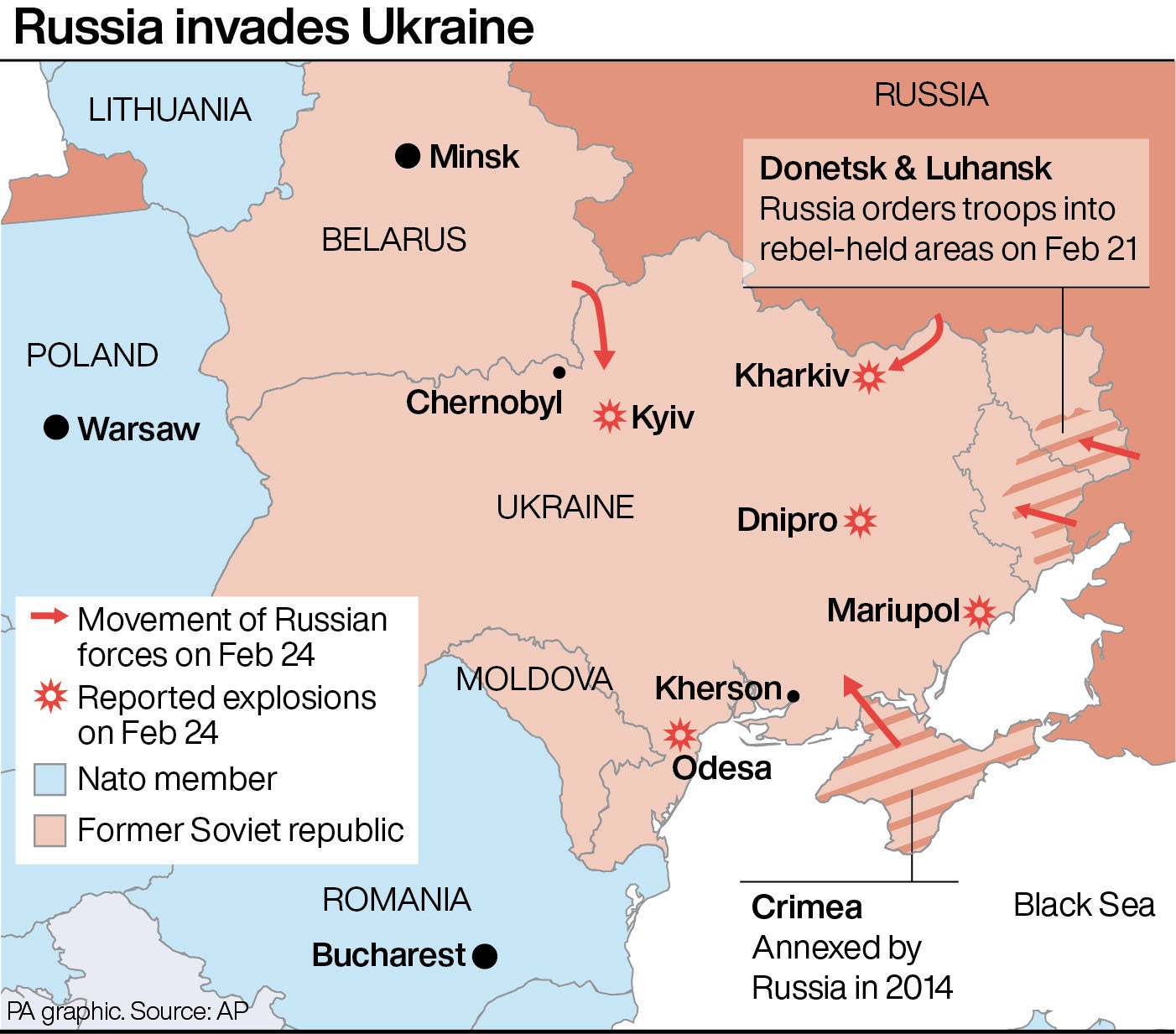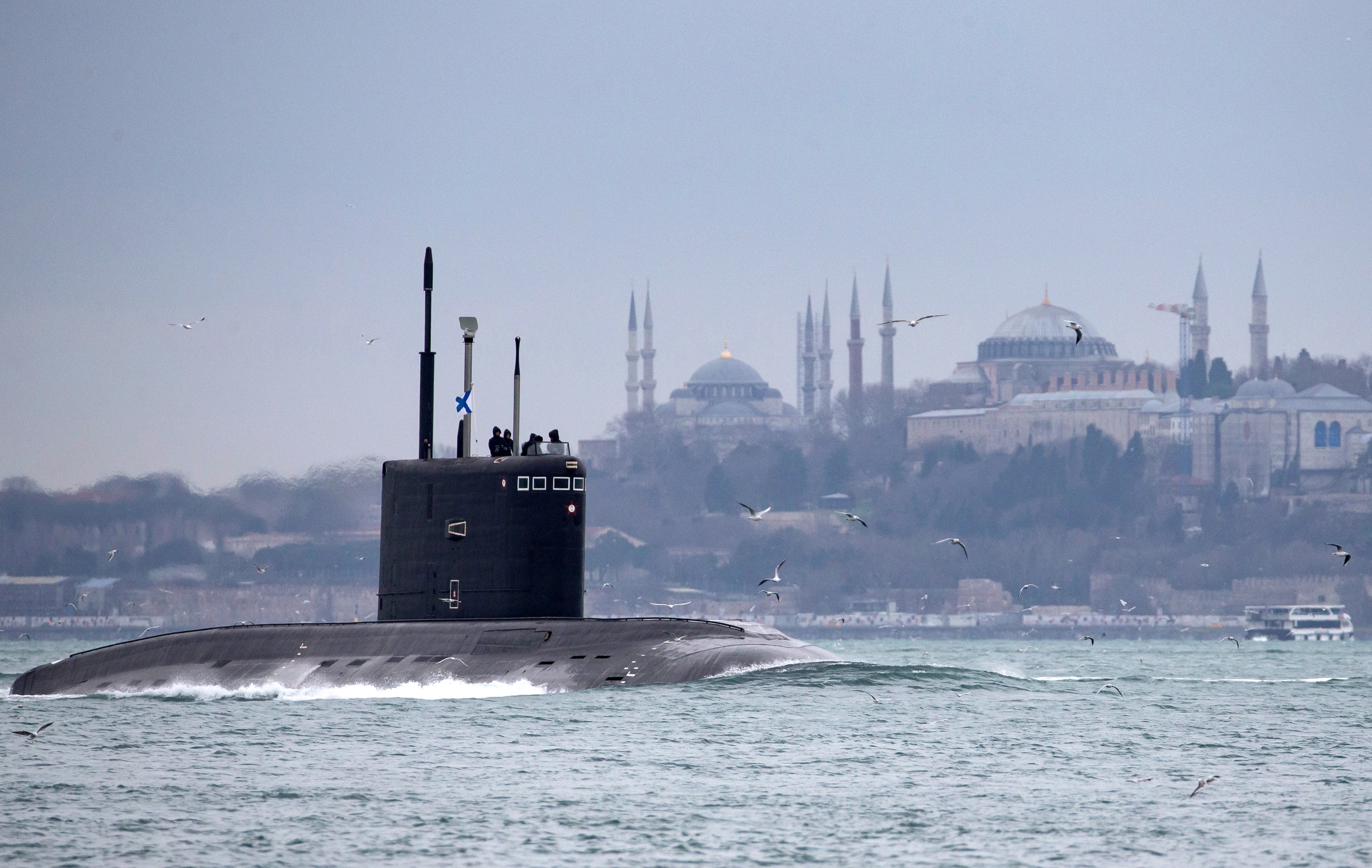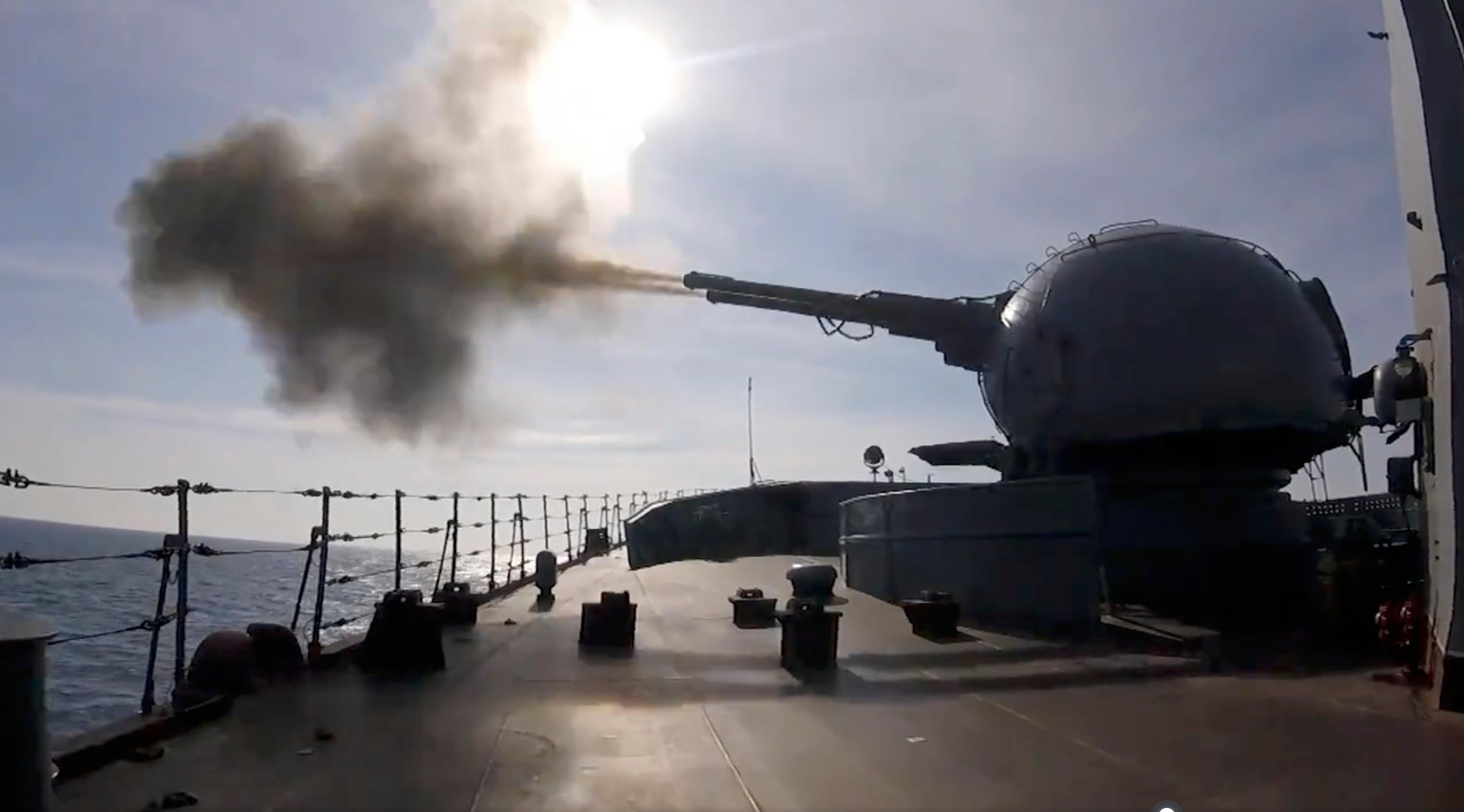Ukraine: Russia targets control of the Black Sea to further threaten the west
Black Sea has suddenly emerged as a major frontline and potential flashpoint between Russia and Nato
Your support helps us to tell the story
From reproductive rights to climate change to Big Tech, The Independent is on the ground when the story is developing. Whether it's investigating the financials of Elon Musk's pro-Trump PAC or producing our latest documentary, 'The A Word', which shines a light on the American women fighting for reproductive rights, we know how important it is to parse out the facts from the messaging.
At such a critical moment in US history, we need reporters on the ground. Your donation allows us to keep sending journalists to speak to both sides of the story.
The Independent is trusted by Americans across the entire political spectrum. And unlike many other quality news outlets, we choose not to lock Americans out of our reporting and analysis with paywalls. We believe quality journalism should be available to everyone, paid for by those who can afford it.
Your support makes all the difference.After more than a century as a mostly somnolent backwater, the Black Sea has suddenly emerged as a major frontline and potential flashpoint between Russia and the west following the invasion of Ukraine.
Russian president Vladimir Putinlaunched a major assault on Ukraine on Thursday that targeted installations in cities across the country as well as ports along the Black Sea and the Sea of Azov.
Russian forces have also reportedly sought to wrest control of Ukraine’s Serpent Island, which lies less than 30 miles off the coast of Nato and European Union member Romania.
Russia seized control of Ukraine’s Crimean Peninsula in 2014, and has amassed warships and amphibious assault vehicles off the Ukrainian coast.
Seizing control of Ukraine’s entire 1,400km Black Sea coastline would allow Russia to lord over the other littoral states, and give it the ability to project power toward the Balkans and the Near East, where Russian forces are positioned in the Syrian city of Tartus.
“The Black Sea is Russia’s entrance to the world – including the Mediterranean and Atlantic spheres of influence,” Rustem Umerov, a Ukrainian member of parliament from Crimea, told The Independent in a phone interview. “That’s why [Putin] is focused on the Black Sea.”
Yoruk Isik, an Istanbul-based risk management consultant who focuses on Black Sea ship movements, called the Russian assault a “wake-up call” about Russian intentions for the region.
“They already control Crimea,” he said. “If they take new positions they will really have technical means with missiles to have area denial over the whole of the Black Sea.”
Accessible to the rest of the world’s seas only via the Strait of Bosphorus to the south, the Black Sea was a crucial crossroads during the Bronze Age and under Greek and Byzantine empires, connecting the Balkans and Anatolia to the Caucasus and central Asia. It is filled with ancient shipwrecks which have delighted archaeologists in recent decades.

In the Middle Ages, it came under the dominion of the Ottoman empire, until the Russian empire began to exert control in the 18th century. It became a major battleground during the First World War, when Russia fought against the Ottomans for control of the sea, and during the Second World War, when Soviet forces battled German-led axis powers.
In addition to Russia, Black Sea littoral states now include three Nato members – Turkey, Bulgaria and Romania – as well as Georgia and Ukraine, two nations that have clamoured to escape Russian domination and join the western bloc. Moldova, on Ukraine’s southwestern border, Azerbaijan and Armenia are also countries close to the Black Sea that most analysts consider part of the region.

For Russia, the Black Sea provides the access to warm water ports it has coveted for centuries.
“The Black Sea is important because of the significant access that it offers to Russia – in particular, access to global sea lines of communication and opportunities to project power at strategic distance and expand its air and coastal defences,” said a 2020 report last year published by the Rand Corporation.
For years, Russia has sought to use soft-power tools such as the Orthodox church, media outlets or energy spigots to manipulate the nations of the Black Sea. But it has also been willing to use covert paramilitary as well as raw military power.
Incensed by Tbilisi’s turn toward the western alliance, Russian forces attacked Georgia in 2008, launching airstrikes on major cities, including along its Black Sea coast.
Since Mr Putin’s military takeover and annexation of Crimea, Russia has aggressively militarised the Black Sea. It has resurrected unused military bases and positioned sophisticated weaponry on the peninsula, including cutting-edge air defence systems and older surface-to-air missile systems. It has added six Kilo-class submarines, several frigates and smaller vessels to its Black Sea fleet since 2014.
“The naval acquisitions demonstrate that Russia is seeking to rebuild a long-range strike capability in the Black Sea,” said the Rand report.
In the weeks preceding Thursday’s all-out Russian invasion, experts noted an emphasis on anti-submarine warfare exercises likely aimed at countering any Nato attempts to thwart an attack on Ukraine.
Nato forces have also upped their patrols and joint exercises in the Black Sea and bolstered coordination along what US secretary of defense Lloyd Austin called “Nato’s eastern flank”. A rapid deployment force has been positioned in Romania.
“Russia’s destabilising activities in and around the Black Sea reflect its ambitions to regain a dominant position in the region and to prevent the realisation of a Europe that is whole, free, and at peace,” Mr Austin said during a visit to Romania last year.
In recent years, Ukraine has also sought to strengthen its hand in the Black Sea, ordering Turkish Ada-class corvettes meant to counter Russian warships.
But Kyiv is clearly outclassed and outgunned by Russia, which largely destroyed both Ukraine and Georgia’s naval forces in 2014 and 2008.
Russian and pro-Kremlin land forces positioned in the eastern region of Ukraine could now easily seize the Port of Mariupol, a significant commercial gateway that would give Moscow control of the country’s grain exports. The storied city of Odessa, also a major international sea and airport, was also under Russian attack early Thursday.
“This is a calculated move,” said Mr Isik. “They are trying to choke whatever’s left of the Ukrainian economy.”

Tightening control over the Black Sea gives Russia the ability to “project power into the Caucasus, the Balkans, the Middle East, and beyond,” Alina Polyakova, president and CEO of the Centre for European Policy Analysis, said in testimony to the US Congress last year.
The Kremlin’s control of key energy resources that Nato members rely upon also keeps potential perils at bay. Though Turkey controls access to the passage and under a 1936 treaty can limit the movement of warships in times of armed conflict, Turkish president Recep Tayyip Erdogan said on Thursday he did not want to alienate either Russia or Ukraine.
Other Black Sea states have voiced deep alarm about Russia’s unprecedented invasion, which included the first major airstrikes on a European capital since the 1990s. Bulgaria’s president Rumen Radev described the attack as “unacceptable,” while Romania’s president Klaus Iohannis called it “completely illegal”.
Georgian prime minister Irakli Garibashvili tweeted “#westandwithukraine”, and called on the world “to apply all possible measures to stop blatant violation of international order by Russia”.
Mr Umervov, the Ukranian lawmaker, said Black Sea nations have long memories of Russian encroachments and their broader security implications.
“During the Russian empire times, the focus was to get to Black Sea and the Baltic,” he said. “They gained access, and from that moment on, they continued to expand into eastern and central Europe.”

Join our commenting forum
Join thought-provoking conversations, follow other Independent readers and see their replies
Comments